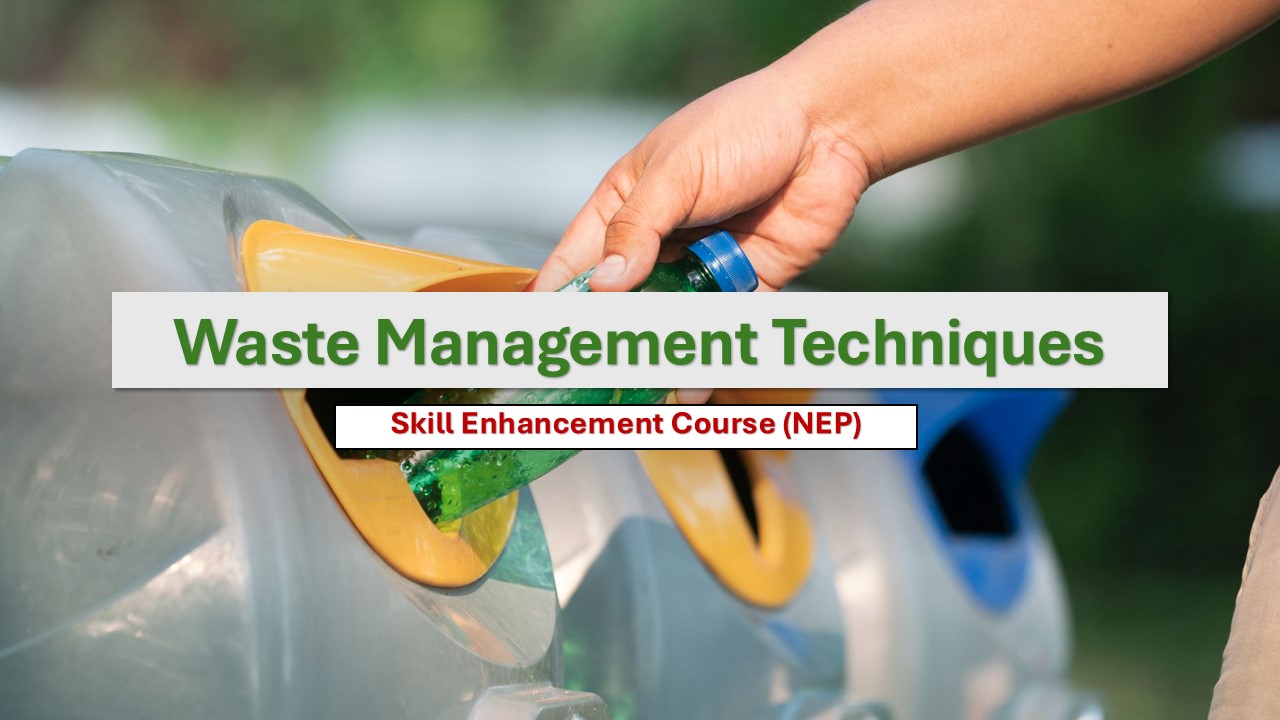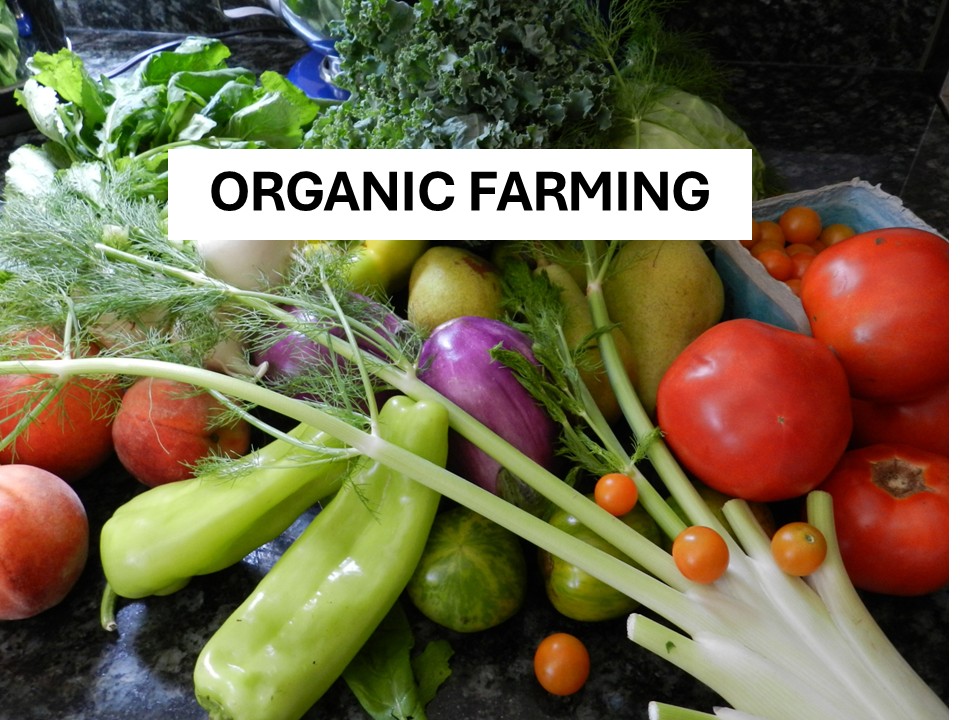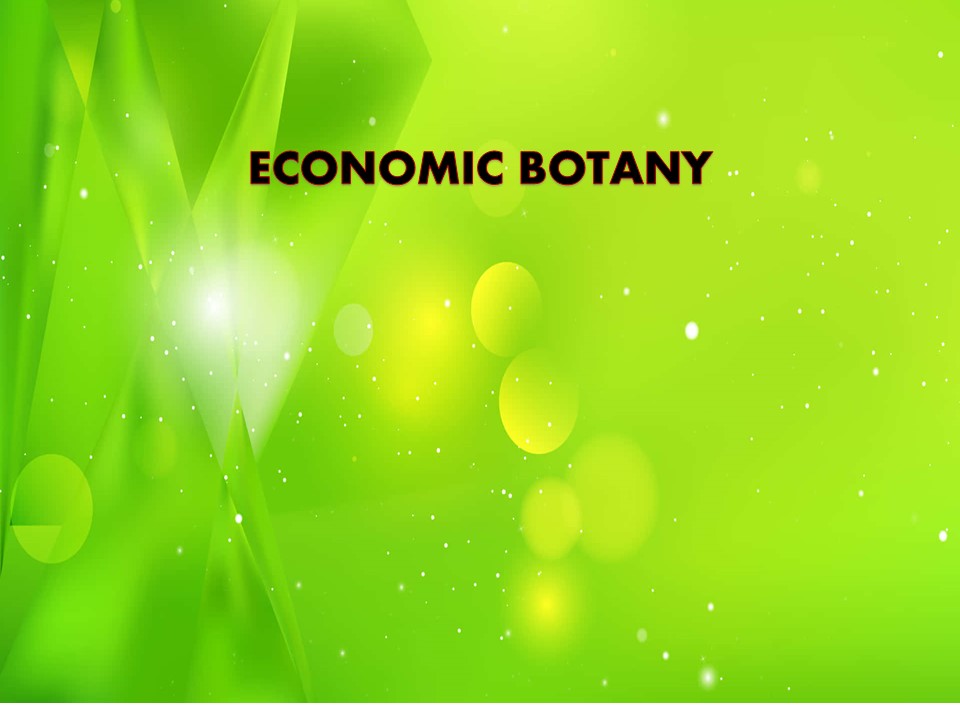
Waste Management Techniques
- Course Objectives:
1. Identify various types of wastes and their sources
2. Understand the sanitary landfill and other disposal
methods for solid waste
3. Understand the treatment methods for waste water.
4. Examine the role of biotechnology in reduction of
different waste.
5*. To compare the different waste treatment techniques
and suggest for a better environment.
- Credits: Theory=2 Practical=1
- Exam Scheme:
Max. Marks: 75
Theory: 55= (35 Theory Written + 15 Theory Internal Assessent)
Practical= 25 (20 Written Practical Exam + 05 Practical Internal Assessment)
- Internal Assessment Theory would be awarded on the basis of:
1. Class Participation: 4 marks
2. Seminar/presentation/assignment/quiz/class test etc.: 4 marks
3. Mid-Term Exam: 07 marks
Internal Assessment Practical would be awarded on the basis of: Viva-voce + Practical Record = 5 marks
- End Term Exam Marks: 55 (Theory 35 + Practical 20)

Organic Farming
The shift towards organic farming is not just a trend—it is a necessity driven by the need for sustainable agricultural practices, environmental conservation, and human well-being. Over the past few decades, the overuse of synthetic fertilizers, pesticides, and intensive farming methods has significantly impacted soil fertility, biodiversity, and ecosystem balance. Organic farming emerges as a holistic solution, integrating traditional wisdom with modern scientific approaches to create a more resilient and environmentally friendly food production system.
Beginning with an introduction to its historical evolution and guiding principles, the course explores crucial aspects such as soil health management, organic crop production, certification standards, sustainable farming practices, and the economic viability of organic produce. Organic farming is more than just the avoidance of synthetic chemicals; it is a philosophy that respects the interconnectedness of soil, plants, animals, and humans. The course emphasizes eco-friendly techniques such as crop rotation, composting, biological pest control, and natural nutrient management, highlighting their role in sustainable food production.

